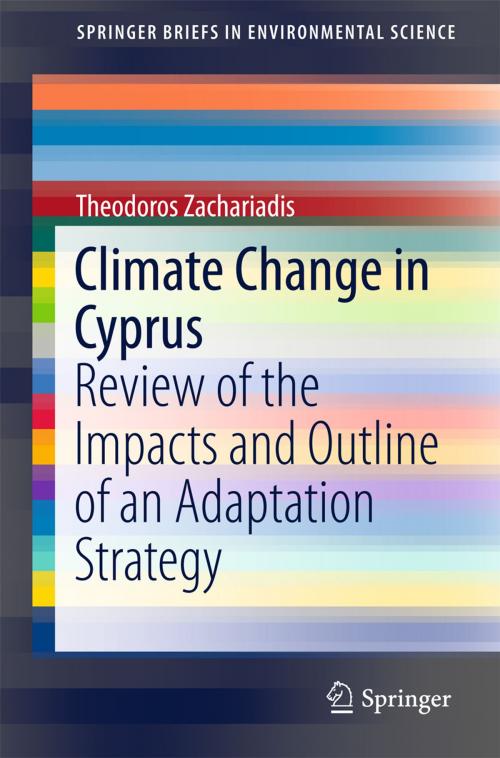Climate Change in Cyprus
Review of the Impacts and Outline of an Adaptation Strategy
Nonfiction, Science & Nature, Science, Biological Sciences, Environmental Science, Earth Sciences, Nature| Author: | Theodoros Zachariadis | ISBN: | 9783319296883 |
| Publisher: | Springer International Publishing | Publication: | January 25, 2016 |
| Imprint: | Springer | Language: | English |
| Author: | Theodoros Zachariadis |
| ISBN: | 9783319296883 |
| Publisher: | Springer International Publishing |
| Publication: | January 25, 2016 |
| Imprint: | Springer |
| Language: | English |
This book provides a concise overview of facts and projections about climate change in Cyprus and its region until the end of the 21st century. Climate change is expected to have adverse effects in Mediterranean Europe – the most serious compared to other European regions. Being an island state with a semi-arid climate in the Eastern Mediterranean, Cyprus is located in a hot spot. Based on the information available in the literature, it highlights the expected natural, economic and societal impacts of climate change and presents recommendations for the implementation of a national adaptation strategy. Despite the dismal outlook arising from this review, the book demonstrates that coping with climate change is possible, provided that proactive actions are taken by both the public and the private sector. Public authorities need to set clear priorities and set up adequate monitoring mechanisms that can help avoid large natural and economic damages at a later stage. Enabling private adaptation investments and properly pricing the use of natural resources are key priorities for investing in a climate resilient economy.
This book provides a concise overview of facts and projections about climate change in Cyprus and its region until the end of the 21st century. Climate change is expected to have adverse effects in Mediterranean Europe – the most serious compared to other European regions. Being an island state with a semi-arid climate in the Eastern Mediterranean, Cyprus is located in a hot spot. Based on the information available in the literature, it highlights the expected natural, economic and societal impacts of climate change and presents recommendations for the implementation of a national adaptation strategy. Despite the dismal outlook arising from this review, the book demonstrates that coping with climate change is possible, provided that proactive actions are taken by both the public and the private sector. Public authorities need to set clear priorities and set up adequate monitoring mechanisms that can help avoid large natural and economic damages at a later stage. Enabling private adaptation investments and properly pricing the use of natural resources are key priorities for investing in a climate resilient economy.















